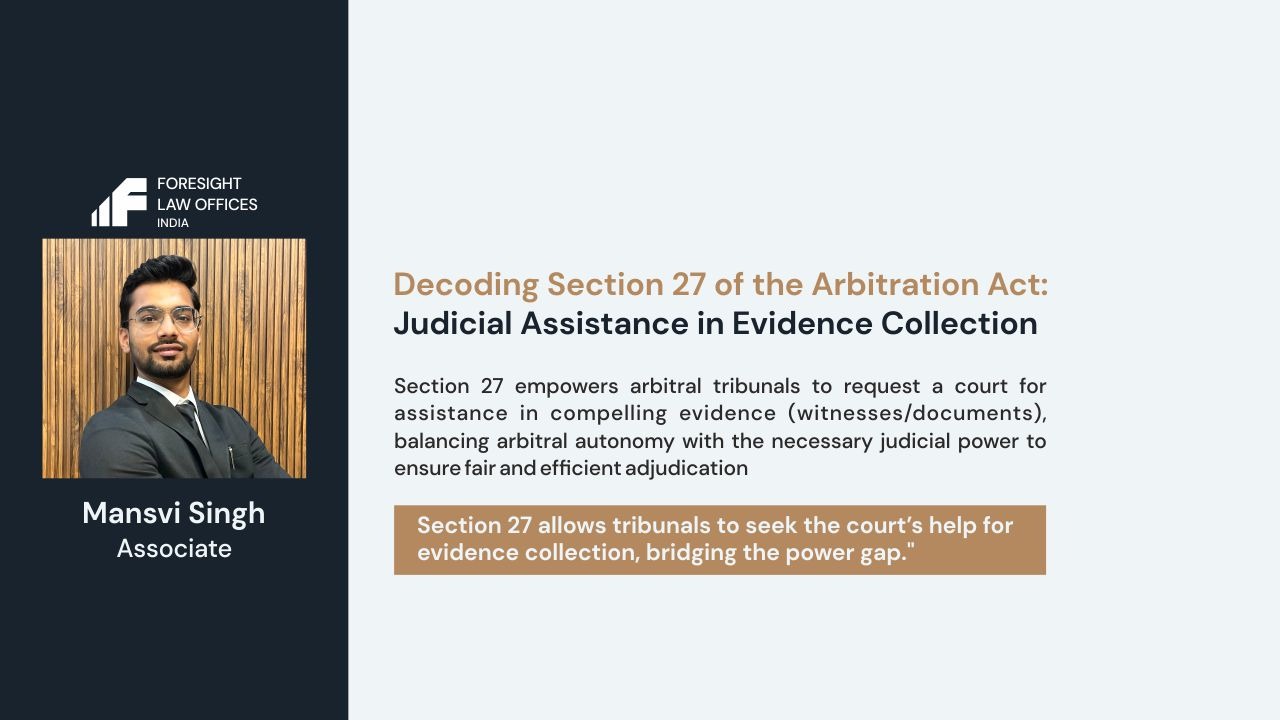Section 27 of the Arbitration and Conciliation Act, 1996, plays a crucial role in bridging the gap between arbitral tribunals and judicial courts when it comes to taking evidence. Since arbitral tribunals do not have coercive powers like civil courts, this provision enables them—or parties with tribunal approval—to seek court assistance for summoning witnesses or compelling the production of documents.
In National Insurance Co. Ltd. v. S.A. Enterprises [(2015) SCC OnLine Bom 5063], the Bombay High Court emphasized that Section 27 empowers the court to assist tribunals in evidence collection where parties or third parties fail to comply voluntarily. The court clarified that arbitral tribunals lack the power to compel attendance or document production, and hence, judicial assistance becomes necessary to ensure effective adjudication.
The Delhi High Court in Hindustan Petroleum v. Ashok Kumar Garg (2006 SCC OnLine Del 1056) underscored the need for the arbitral tribunal to apply its mind before granting permission under Section 27. It held that tribunals must examine the relevance of the evidence sought before allowing parties to approach the court.
This view was reaffirmed in SAIL v. Uniper Global Commodities [2023 SCC OnLine Del 7586], where the court declined intervention, directing the tribunal to first consider the materiality of the evidence.
In Dilip v. Errol Moraes [2022 SCC OnLine Bom 129], the Bombay High Court highlighted that courts under Section 27 are not appellate bodies over arbitral procedural decisions and must limit their role to facilitating evidence collection without judicial scrutiny of the tribunal’s reasoning.
Thus, Section 27 ensures a fine balance between arbitral autonomy and judicial assistance, promoting efficiency while safeguarding fairness in arbitral proceedings.






